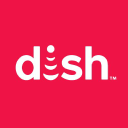With Echostar Merger Approaching, What To Expect From Dish’s Q3 Results?
Dish Network stock (NASDAQ: DISH) is poised to report its Q3 2023 results in early November, reporting on a quarter that saw Dish announce that it would merge with satellite communications and Internet player Echostar, as it looks to gain more financial flexibility as it builds a nationwide wireless network. We expect Dish revenues to come in at about $3.73 billion for the quarter, a decline of about 10% versus last year and roughly in line with the consensus estimates. We expect that earnings will stand at about $0.05 per share, ahead of the consensus estimates of about $0.04. See our analysis of Dish Network’s Earnings Preview for more details on what to expect from Dish’s Q3 results.
Amidst the current financial backdrop, DISH stock has suffered a sharp decline of 85% from levels of $30 in early January 2021 to around $5 now, vs. an increase of about 15% for the S&P 500 over this roughly 3-year period. Notably, DISH stock has underperformed the broader market in each of the last 3 years. Returns for the stock were 0% in 2021, -57% in 2022, and -64% in 2023 (YTD). In comparison, returns for the S&P 500 have been 27% in 2021, -19% in 2022, and 10% in 2023 (YTD) – indicating that DISH underperformed the S&P in 2021, 2022, and 2023. In fact, consistently beating the S&P 500 – in good times and bad – has been difficult over recent years for individual stocks; for heavyweights in the Consumer Discretionary sector including AMZN, TSLA, and HD, and even for the megacap stars GOOG, MSFT, and AAPL. In contrast, the Trefis High Quality (HQ) Portfolio, with a collection of 30 stocks, has outperformed the S&P 500 each year over the same period. Why is that? As a group, HQ Portfolio stocks provided better returns with less risk versus the benchmark index; less of a roller-coaster ride as evident in HQ Portfolio performance metrics. Given the current uncertain macroeconomic environment with high oil prices and elevated interest rates, could DISH face a similar situation as it did in 2021, 2022, and 2023 and underperform the S&P over the next 12 months – or will it see a recovery?
Dish’s satellite TV business has been facing a secular decline, due to cord-cutting. Over Q2 2023, Dish lost approximately 294,000 pay-TV subscribers, accelerating from a decline of 257,000 in the year-ago quarter. We expect the trend to largely continue into Q3 as well, impacting revenues. Dish’s wireless business – which comprises the Boost Mobile and Boost Infinite – also lost about 188,000 subscribers in the second quarter, versus a net decline of 210,000 subscribers in the year-ago quarters. At the end of Q2, the company had 7.73 million retail wireless subscribers.
Dish stock has also lost over 60% of its value this year, falling to about $5 per share due to a recent cyber attack, rising interest rates, and continued subscriber losses, which are seen as a negative for the highly leveraged company. However, things could look up a bit for the company following a merger with Echostar and also a wider rollout of its 5G network. Dish had been spending heavily to build out its wireless network and this pushed its free cash flow into negative levels last year, with its debt also trading at distressed levels. However, the deal with Echostar could help from a balance sheet perspective, as Echostar had close to $2 billion in cash as of the end of June, with cash flows potentially set to grow as the company brings its new Jupiter 3 satellite online. Moreover, the deal is also expected to result in considerable revenue and cost synergies, which could help to improve profitability going forward. Dish is also very asset-rich, considering its massive spectrum holdings. The company holds around 150 MHz of sub-6 GHz frequency, compared to Verizon and AT&T which own around 290 MHz each, per UBS. While there are regulations that prevent Dish from selling its spectrum before 2026, the Echostar deal and a winding down of capex in the near term could buy the company time. Dish also trades at under 7x consensus 2023 earnings, which makes the risk-to-reward trade-off for the stock more acceptable. Our $12 price estimate for Dish is well ahead of the current market price. See our analysis on Dish Network Valuation: Expensive Or Cheap for more details.
- Can Dish Network Stock Return To Its Pre-Inflation Shock Highs?
- Dish Stock Has Big Upside Potential To Its Pre-Inflation Peak
- How Will The Cyber Attack Impact Dish’s Q1 Results?
- Is Dish Network Stock A Buy Despite Many Headwinds?
- Will Dish Network Stock Continue To Underperform?
- What’s Next For Dish Network Stock?
| Returns | Oct 2023 MTD [1] |
2023 YTD [1] |
2017-23 Total [2] |
| DISH Return | -15% | -64% | -91% |
| S&P 500 Return | -1% | 10% | 89% |
| Trefis Reinforced Value Portfolio | -2% | 21% | 520% |
[1] Month-to-date and year-to-date as of 10/23/2023
[2] Cumulative total returns since the end of 2016
Invest with Trefis Market-Beating Portfolios
